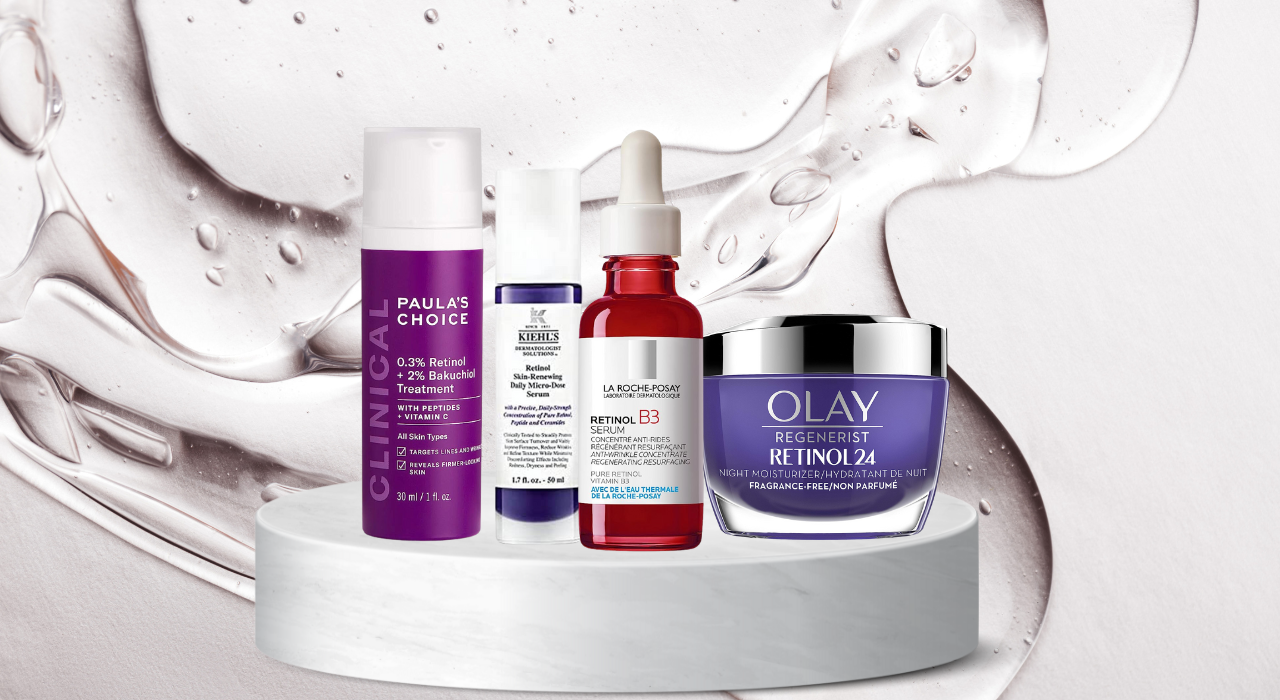Can I Use Tretinoin Forever: The Ultimate Guide
Unlock the secrets of flawless skin with tretinoin! Can you use it forever? Find out in this definitive guide. Discover the benefits, side effects, and safety precautions for long-term use. Start your journey to healthy and glowing skin today!
When it comes to skincare, finding effective treatments that deliver long-lasting results is essential. Tretinoin, a derivative of vitamin A, has gained popularity for its ability to improve various skin concerns. However, a common question among users is, “Can I use tretinoin forever?” In this complete guide, we will cover the advantages, risks, safety tips, and usage guidelines for long-term tretinoin use. Let’s dive in and discover the secrets of this remarkable skincare ingredient!
What is Tretinoin?
Tretinoin, also known as all-trans retinoic acid, is a topical medication that belongs to the retinoid family. It is mainly used in dermatology for its skin rejuvenating properties. Tretinoin works by increasing skin cell turnover, promoting collagen production, and unclogging pores. It is recommended for the treatment of a variety of skin conditions, including acne, fine lines and wrinkles, and certain types of hyperpigmentation.
Understanding Tretinoin Treatment
Tretinoin is known for its ability to treat a wide range of skin problems. When applied topically, it penetrates the skin and interacts with retinoic acid receptors, which regulate gene expression. This process leads to normalization of cell turnover, resulting in smoother, healthier skin. Tretinoin is commonly used to treat acne, reduce the appearance of fine lines and wrinkles, and fade acne scars and hyperpigmentation.
The Benefits of Long-Term Tretinoin Use
One of the main reasons people consider long-term tretinoin use is the array of benefits it offers. With consistent and appropriate use, tretinoin can help improve skin texture and tone, reduce the appearance of fine lines and wrinkles, manage acne breakouts, and possibly even prevent certain types of skin cancer. can do. However, it is important to note that results may vary depending on individual factors and skin conditions.
Potential Side Effects
As with any medication, tretinoin can have potential side effects, especially during the initial adjustment period. Some common side effects may include dryness, redness, peeling, and increased sun sensitivity. However, these effects are usually temporary and can be minimized by following proper usage guidelines. It is important to start with a low concentration and gradually increase the strength under the guidance of a dermatologist.
Safety of Long-Term Use
The safety of long-term tretinoin use has been studied extensively. Research shows that when used appropriately and under medical supervision, tretinoin is generally safe for long periods of time. However, it is important to consult a dermatologist to make sure the treatment is appropriate for your skin type, and to discuss any pre-existing conditions or medications that may interact with tretinoin.
Guidelines for Long-Term Tretinoin Use
To maximize the benefits of long-term tretinoin use and minimize potential side effects, there are some important guidelines to follow. Start by applying a pea-sized amount of tretinoin to clean, dry skin every night or as directed by your dermatologist. Gradually increase frequency and strength over time as tolerated. Always use a sunscreen with a high SPF during the day, as tretinoin can increase sun sensitivity. Regular follow-up appointments with your dermatologist are essential to monitor progress and make any necessary adjustments.
Adjusting Tretinoin Strengths Over Time
It is common for dermatologists to prescribe tretinoin in gradually increasing strengths to minimize initial side effects and allow the skin to adapt. Your dermatologist will evaluate your skin’s response and make recommendations accordingly. Adjusting the strength over time ensures that your skin gets the best benefits of tretinoin while minimizing any potential discomfort.
Alternatives to Tretinoin
When it comes to skin care, tretinoin has long been respected for its remarkable benefits. However, it may not be suitable for everyone due to individual skin sensitivity or other factors. Fortunately, there are alternative options available that can provide similar benefits. In this article, we will explore three popular alternatives to tretinoin: adapalene, tazarotene, and retinol. By understanding these alternatives, you can make an informed decision about the best option for your specific skin care needs.
Adapalene: A Gentle Option for Acne Treatment
Adapalene is a retinoid that is known for its gentle yet effective acne-fighting properties. It works by unclogging pores, reducing inflammation, and regulating cell turnover. Adapalene is often recommended for individuals with sensitive skin or those who experience initial irritation with tretinoin. It is available over-the-counter in lower concentrations and by prescription in higher strengths. As with any skincare product, it is advisable to consult with a dermatologist to determine the most appropriate formulation for your needs.
Tazarotene: A Potent Prescription Alternative
Tazarotene is another retinoid that offers potent benefits for various skin concerns. It is available in cream or gel formulations and requires a prescription. Tazarotene works by promoting cell turnover, reducing the appearance of fine lines and wrinkles, and improving skin texture. It is particularly effective for individuals with acne, psoriasis, or photodamaged skin. However, it may cause more initial irritation compared to tretinoin or adapalene. Your dermatologist can assess your skin condition and recommend the appropriate concentration of tazarotene for optimal results.
Retinol: An Over-the-Counter Option
Retinol is a popular alternative to prescription retinoids and is available over-the-counter in various skincare products. It is a milder form of vitamin A that undergoes conversion into the active form, retinoic acid, in the skin. Retinol offers similar benefits to tretinoin, including the promotion of collagen production, improvement of skin texture, and reduction of fine lines and wrinkles. While it may take longer to see noticeable results compared to prescription retinoids, retinol is generally well-tolerated by most individuals. It is important to select a retinol product with an appropriate concentration and to gradually incorporate it into your skincare routine to avoid irritation.
Consulting with a Dermatologist
Choosing the right alternative to tretinoin depends on your individual skin type, concerns, and sensitivity. Consulting with a dermatologist is crucial to receive personalized advice and determine the most suitable option for your needs. They can assess your skin condition, recommend the ideal concentration of the alternative retinoid, and provide guidance on how to incorporate it into your skincare regimen.
Summary

In conclusion, the question of whether you can use tretinoin forever depends on several factors, including individual response, skin type, and proper usage. Tretinoin offers remarkable benefits in improving skin texture, reducing signs of aging, managing acne, and potentially preventing skin cancer. However, it is essential to consult with a dermatologist to determine the suitability of long-term use and to establish a personalized treatment plan. With proper guidance and regular monitoring, tretinoin can be a valuable ally in achieving healthy, radiant skin.
Find more insightful articles and tips at Dailypathways
FAQs
Q1: Is tretinoin suitable for all skin types?
Tretinoin can be used on various skin types, but it is essential to consult with a dermatologist to assess your specific needs. They can determine the appropriate concentration and formulation based on your skin type and concerns.
Q2: Can tretinoin be used during pregnancy or while breastfeeding?
Tretinoin is generally not recommended for use during pregnancy or while breastfeeding due to the lack of extensive safety data. It is crucial to consult with a healthcare professional for alternative skincare options during this period.
Q3: How long does it take to see results with tretinoin?
Results with tretinoin can vary depending on individual factors and skin conditions. While some individuals may notice improvements in a few weeks, it can take several months of consistent use to see significant results. Patience and adherence to a skincare routine are key.
Q4: Can tretinoin be used in conjunction with other skincare products?
Tretinoin can be used in conjunction with other skincare products, but it is essential to introduce them gradually to avoid overwhelming the skin. Consult with a dermatologist to ensure compatibility and to develop a skincare regimen that complements your tretinoin treatment.
Q5: Are there any age restrictions for using tretinoin?
There are no specific age restrictions for using tretinoin. However, it is typically recommended for adults who are experiencing acne, signs of aging, or other skin concerns. Dermatologists can assess the suitability of tretinoin for younger individuals on a case-by-case basis.




